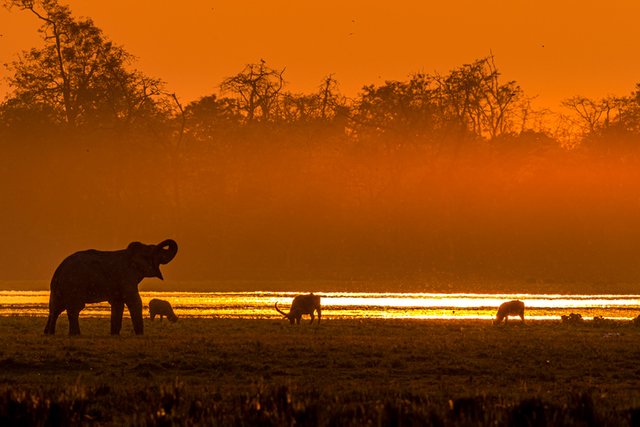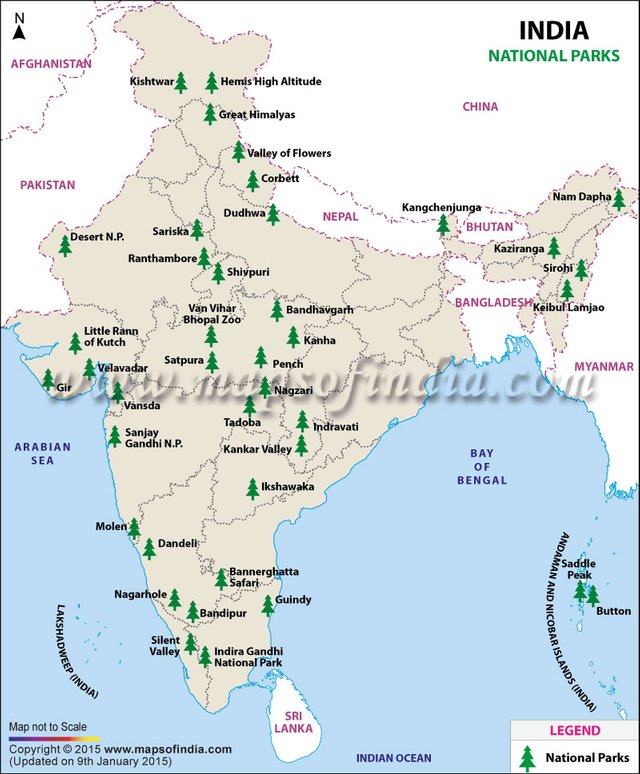National Parks of India
Besides its numerous wildlife sanctuaries, India also sports nearly twenty national parks. All manner of flora and fauna can be found within the boundaries of these parks. Below are a few of the most popular.
Sri Venkateshwara National Park extends over two districts of Chittoor and Cuddapah of Andhra Pradesh in an area of 353.62 sq. km. The park established in October 1989, is named after Lord Venkateshwara of Tirupati. It is located in Rajampet of Cuddapah district and Chandragiri and Bailapadu of Chittoor district. The hilly terrain bounded by Seshachalam and Tirumala hills is rugged and beautiful with gorges, steep slopes, plateaus, and valleys. The park is also famous for its beautiful waterfalls like Talakona, Gundalakona, and Gunjan.
Kaziranga National Park lies on the south bank of the Brahmaputra. The Park was established in 1908 and was declared a National Park in 1974.
Hemis High-Altitude National Park is the largest high-altitude reserve in India. Very close to Leh, in the area of Markha and Rumbak Valleys, the area, in general, is rocky and sparsely covered. The park comes under the district of Ladakh and represents the Trans-Himalayan ecosystem. The park was established in the year 1981 to preserve the dwindling population of wildlife in the Ladakh region with an area of 600 sq km. The park has been earmarked as one of the snow leopard reserves under a central government project to conserve the species, its prey population, and fragile mountain habitat. It takes its name from the world-famous Buddhist Gompa situated here.
Sunderban is located in the Ganga delta in West Bengal and was declared a National Park in 1984. It covers a vast stretch of mangrove swamp, lushly forested islands, and small rivers near the Bay of Bengal and comprises mainly estuarine mangrove forests and swamps. The Sajnakhali sanctuary, famous for its rich avian population, is regarded as a part of the Sunderbans National Park.

